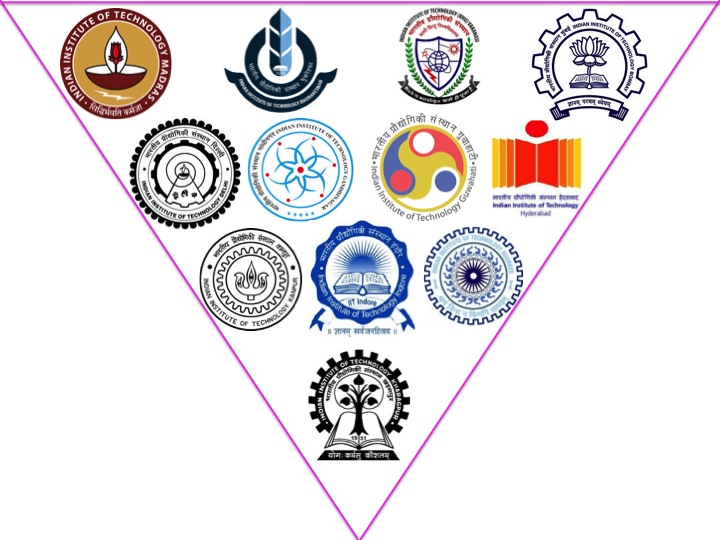IITs against 377


Here is the full text of the petition signed by 1157 students, alumni, faculty and staff the Indian Institutes of Technology against the Supreme Court’s decision to re-criminalise same-sex behaviour among consenting adults in private.
While, unfortunately, the Supreme Court chose to ignore these and other submissions, this petition stands testimony to the increasingly progressive attitudes among members of these premier institutions of technology education and research. Check out the website of Saathi, IIT-Bombay’s campus queer group and Samvita Kalyan’s piece ‘A Rainbow-Coloured Movement‘ published in The Fifth Estate, IIT-Madras campus newsletter, for more evidence of the growing visibility of queer and trans people on campus, and of heartening support from allies.
To
The Honourable Chief Justice of India,
The Honourable Prime Minister of India,
The Honourable Minister of Home Affairs, India,
The Honourable Minister of Law and Justice, India,
The Honourable Minister of Human Resource Development, India,
and The Directors of the Indian Institutes of Technology.
Dear Sirs,
We are a group of students, alumni, faculty and staff of the Indian Institutes of Technology, collectively expressing our shock and disappointment at the Supreme Court’s decision to reinstate Section 377 of the Indian Penal Code. Section 377 is a British-era statute that outlaws “carnal intercourse against the order of nature” and includes within its ambit intercourse among consenting adults of the same sex. We hold that this law violates the fundamental rights of privacy and autonomy accorded to all Indian citizens by its Constitution, and the rights to dignity, equality and due process of Lesbian, Gay, Bisexual, Transgender and Queer (LGBTQ) citizens. While we demand that the law be immediately modified to exclude all forms of sexual intercourse among consenting adults, we wish to reiterate that this is merely one step towards the goal of equal membership in Indian society for everyone, regardless of sexuality and gender identity.
In 2009, a landmark judgment issued, by the Delhi High Court, declared Section 377 unconstitutional insofar as it applies to consenting adults. Embarking on a well-researched and empirically informed analysis of the impact of the law on sexual minorities, the Court found the law to be arbitrary in its scope and intent, as well as in violation of the right to equality under the law, and the right to dignity and personal autonomy. The Delhi High Court elevated sexuality and gender identity to the status of a protected class under the Indian Constitution, thereby laying the foundation for future efforts to end discrimination in workplaces, educational institutions and domestic environments.
Where the Delhi High Court’s ruling was a bold effort to give life to the promise of Indian Constitutionalism, the Supreme Court’s decision to reverse it is a deceptive attempt to use judicial restraint as a cover for its refusal to critically interrogate the social effects of legal provisions. Ignoring the lived experiences of LGBTQ people in India altogether, it argues that Section 377 merely penalizes certain acts and does not stigmatize a class of Indian society based on sexuality and gender identity. By failing to recognize the fact that the law exposes LGBTQ people to illegal extortion, harassment and persecution, and by suggesting that the rights of LGBTQ individuals are less worthy of protection because of their “miniscule proportion”, the Supreme Court has failed to perform its constitutional responsibility and betrayed the trust of the Indian people. Suffering from contradictory arguments, dubious factual claims, and an absolute lack of empathy, the judgment is an affront to the values of fostering a scientific temperament as part of the commitment to the betterment of humanity, upon which our nation was founded, and which motivated the foundation of the Indian Institutes of Technology.
LGBTQ individuals, activists and supporters from all parts of India have risen up in shock, anger and outrage, determined to repeal 377 and to make their claims of citizenship heard in the public sphere. They have received the support of the legal community, a large section of the country’s political leadership, human rights monitors in the United Nations as well as supporters throughout the global diaspora, of which IITians constitute a substantial share. It is to this chorus of dismay and disapproval that we seek to join our voice. We write to express our commitment towards the rights of LGBTQ people, including members of the Hijra, Aravani, Kothi and like communities, to live their lives with dignity, freed from the burdens of fear, loathing, and pervasive discrimination.
We reiterate that our concern goes beyond the rights of adults to participate in private acts of consensual sex. It is focused on the public domain, where alternate sexuality and gender identity is often treated as a form of deviance in schools, colleges, workplaces, religious institutions, and governmental institutions. Patriarchy and hetero-normativity are pervasive facts of social life in all parts of the country, including the campuses of elite institutions like the IITs. Women and LGBT individuals among the undersigned have often experienced prejudice in their routine interactions with their classmates, colleagues, professors as well as members of the institute administration, and these experiences of prejudice at close quarters can sometimes be more debilitating than an archaic and distant law.
The institutionalization of prejudice, both in the legal and the social spheres, is often premised on claims about certain sexual practices being “unnatural”, imports from “western” cultures and symptoms of “mental illness”. These claims have been emphatically shown to be incorrect. Same-sex intercourse is found in about 1,500 species of animals, including the species closest to Homo sapiens in evolutionary terms. There are many instances of alternative sexualities being expressed in Indian mythology, as seen in the work of scholars like Ruth Vanita and Saleem Kidwai. Moreover, there is increasing evidence of a hidden sub-culture of queer people in medieval and early-modern India. The Hijra, Aravani and Kothi communities have oral traditions which prove that queer identities are as native to Indian civilization as any other. The medical community, including the American Psychiatric Association, Indian Psychiatric Society and the World Health Organization, have repeatedly argued that alternative sexualities and gender identities are not symptoms of mental illness. Given the preponderance of scientific, historical and anthropological evidence, it comes as somewhat of a surprise to us that patently incorrect claims are still circulating in society, and we call upon the scientific establishment and various educational institutions – including the IITs – to assist the LGBT community at large in dispelling these misconceptions.
While efforts to read down Section 377 and to dispel societal misconceptions must continue, we also re-commit ourselves to protecting the gains made in recent years within IITs to create a more welcoming atmosphere for women and LGBT individuals. While Section 377 has, in the past, relied heavily on social stigma to penalize sexual minorities, we assert that we will not allow ourselves to be used in this manner to discriminate against our own peers. Several support groups for queer students have been established and received official recognition in various IITs in the past two or three years. Their rights of free association are by no means affected by a law that merely criminalizes certain sexual acts. We therefore hope that they will continue to get the full support of their peers, their professors and the institute administrations. In short, while the latest Supreme Court judgment represents an unfortunate reversal in the development of India’s human rights law, we hope that this will not halt the realization of human rights for women and sexual minorities through concerted social change, with IITs leading the way.
Yours sincerely,
Download the full list of 1157 signatories here.

Kick 377 to the curb. Idiotic, insensitive and immoral. As a alumnus of IT-BHU, I support to scrap 377